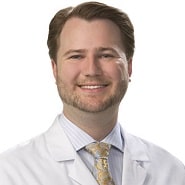
Patrick Woodard, MD, Chief Medical Information Officer & Vice President, Clinical Systems, Renown Health
Last week, JAMA Network Open reported that a majority of teen patient portal visits were by guardians. Having been on the receiving end of disgruntled phone calls from parents who could not access their child’s information, I certainly understand the thinking: “I can help my child be healthy by knowing everything about their health.”
But as a health system, we first have to respect patient autonomy and foster trust. Individuals’ opinions about healthcare can be dramatically shaped during their adolescent years. By fostering an open, trusting relationship with their provider, both in person and digitally, health systems can promote this level of trust. Unfortunately, parents’ intervention into teens’ private healthcare relationship erodes that trust.
So what is a health system’s responsibility?
- Promote positive health perceptions by first creating a safe space to foster trust with healthcare providers, both in person and digitally
- Create easy-to-use portal proxy accounts with clear rules of what is and isn’t shared
- Make it simple for providers to understand how the portal works and communicate that with patients, especially adolescents and elderly patients with healthcare proxies.
What is not the health system’s responsibility?
- Being the parent police.
And for technology architects and digital leaders, here is my top request:
- Make it easy to do the right thing and hard to do the wrong thing.
To view the article – Assessment of Prevalence of Adolescent Patient Portal Account Access by Guardians, published by JAMA Network Open – click here.
Patrick Woodard, MD, recently took on the role of Chief Digital Officer at Methodist Le Bonheur Healthcare, having previously held the CMIO at Renown Health.


Share Your Thoughts
You must be logged in to post a comment.